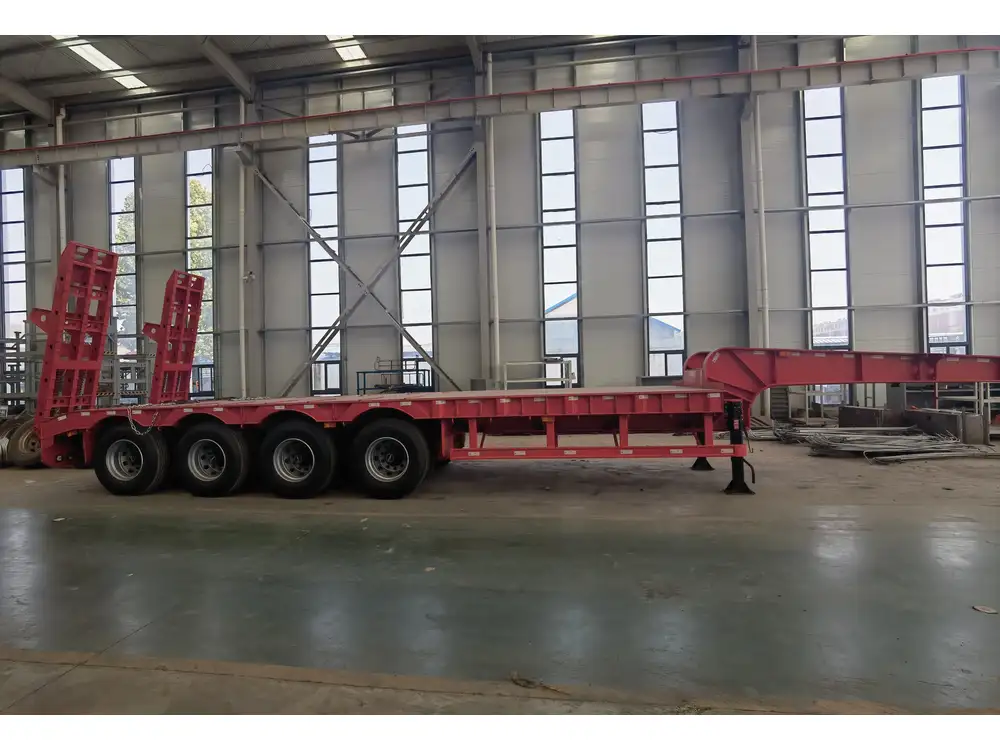When operating a dump trailer, it’s crucial to comply with local regulations regarding vehicle registration. One of the most common issues faced by trailer owners is the proper placement of license plates. In this article, we will delve deep into the specifics of where and how to attach a license plate on your dump trailer, ensuring you remain compliant with the law and facilitating seamless operation.
Understanding the Legal Framework
Importance of License Plate Placement
The placement of a license plate is not merely an aesthetic choice; it serves functional and legal purposes. Proper positioning ensures visibility for enforcement officers, helps avoid fines, and guarantees your trailer’s identification on the road. It also facilitates accountability in case of incidents or accidents involving your trailer.

Local and State Regulations
Every state has its own laws concerning trailer registration and license plate placement. Understanding these regulations is imperative, as non-compliance can lead to hefty fines or, worse, confiscation of your trailer. Below we offer a comparison of common guidelines across various states:
| State | License Plate Location | Notes |
|---|---|---|
| California | Rear, lower center or left side | Must be illuminated at night |
| Texas | Rear, lower center or left side | Trailer must also have a light |
| Florida | Rear, visible from 100 feet | No obstruction with materials |
| New York | Rear, lower center | Single plate for trailers |
| Illinois | Rear, mounted in a stable position | Both sides may require plates |
Note: Always verify with the Department of Motor Vehicles (DMV) in your state for the most current regulations.
Best Practices for License Plate Placement
Recommended Positioning
Center of the Rear Wall: The most common and recommended area to place the license plate is the center of the rear wall of the dump trailer. This location maximizes visibility from behind, which is essential for law enforcement and other road users.
Left Side Mounting: In some scenarios, particularly with larger trailers or specific design features, mounting the plate on the left side can increase visibility. Ensure it is mounted at an angle that can be easily read from a distance.
Brackets and Holders: Utilize robust license plate brackets designed for trailers. They should be made of corrosion-resistant material to withstand various weather conditions and road debris.

Guidelines for Mounting
- Height: The license plate should be mounted at a height between 12 to 48 inches from the ground for optimal visibility.
- Secured Fastening: Use appropriate screws or bolts that won’t loosen from vibration and that withstand highway speeds. Double-check fastening after transportation to ensure stability.
Visibility and Illumination
- Ensure Visibility: The plate must be clear of obstructions such as mud flaps, cargo, or structural features of the trailer.
- Nighttime Visibility: If required by law in your state, install a light over the license plate area to illuminate it during nighttime driving or in low-light conditions.
Common Problems and Solutions

Problem #1: License Plate Obscured by Load
One of the common dilemmas faced by dump trailer operators is the obscuring of the license plate by loaded material. To mitigate this:
- Load Height Regulations: Familiarize yourself with the height regulations for loads to ensure that they do not exceed the allowable limits where the plate becomes hidden.
- Use of Flags and Markers: If your load is over-height, consider flagging the trailer and ensuring that the license plate remains visible from behind.
Problem #2: Damage to License Plate
Another challenge is the potential for the license plate to be damaged during operation.
- Reinforced Mounting: Use impact-resistant materials for both the plate and the mounting bracket.
- Regular Inspection: Frequently inspect your license plate for signs of wear or damage, especially after transporting heavy or abrasive materials.
Problem #3: Adherence to State Regulations
If you travel across state lines, staying compliant with varying regulations can be daunting.
- Research Local Laws: Prior to travel, look up the license plate requirements of any states you will be traveling through.
- Standardization: If you frequently operate in different states, consider standardizing your trailer equipment to adhere to the highest regulatory requirements.

Additional Considerations
Registration and Renewal
After placement, ensure that your dump trailer’s license plate is correctly registered with your state. Follow local guidelines for vehicle registration renewals to avoid any lapses:
- Keep Documentation Handy: Always have your registration documentation accessible in case of roadside inspections.
- Timely Renewals: Set reminders for renewals to avoid fines associated with outdated registrations.
Custom Plates
If you are an enthusiast or operate a business, consider personalized license plates. Some states allow customization as long as they adhere to visibility regulations.

Seasonal Adjustments
Depending on usage, rotating the type of equipment or additional signage may be advantageous. Ensure that the license plate remains in the designated area and is not obstructed by any seasonal attachments or modifications.
Conclusion: Ensuring Compliance and Safety
In summary, correctly mounting and maintaining the visibility of your dump trailer’s license plate is not only a matter of compliance but also a cornerstone of trailer operation safety. By adhering to state regulations, implementing best practices for mounting and visibility, and addressing common issues proactively, you can enjoy a hassle-free experience while operating your dump trailer.
For further inquiries or assistance, please consult local DMV offices or professional trailer manufacturers. Together, we can foster a safer environment on our roads, ensuring that each trailer is compliant, visible, and ready for every load.
Remember, the road may be tough, but with the right knowledge and preparation, you can navigate it seamlessly!



